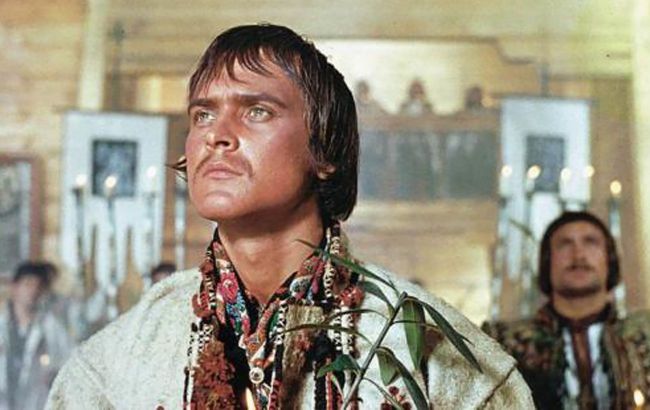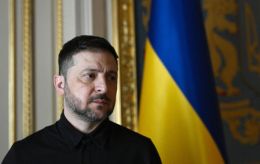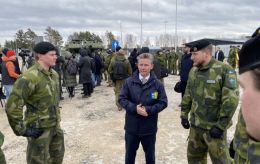Russians 'stole' Parajanov's film and released it in Russian: Details
 Serhii Parajanov's film "Shadows of Forgotten Ancestors" (Photo: till from the movie)
Serhii Parajanov's film "Shadows of Forgotten Ancestors" (Photo: till from the movie)
In the French city of Taverny, Russians organized a so-called "Russian film festival." The organizers, the association Another Russia, have held this event for the 10th time. This year, they dedicated it to the memory of Alexei Navalny. In the program, the Russians included Serhii Parajanov's film "Shadows of Forgotten Ancestors," which they screened under the title "Fiery Horses."
The Ukrainian Embassy in France reacted to this incident, according to Ukrinform.
Scandal at the festival in France
The Ukrainian Embassy in France appealed to the country's competent authorities, including the Ministry of Culture, and reported a glaring case of the festival organizers appropriating Ukrainian cinematographic heritage.
It concerns the screening of Serhii Parajanov's film "Shadows of Forgotten Ancestors," which the festival organizers show under the title "Fiery Horses" as part of "Russian culture."
"The culture continues to be cynically used to legitimize Russian aggression. It is known that for years, this "Russian film festival" relied on the support of the Russian government. Obviously, despite the seemingly formal change of focus by the organizers, their methods largely remain unchanged," the embassy said.
Diplomats emphasize that this is a case of cultural appropriation and ask the French authorities to investigate and restore justice.
About Parajanov's film
The Ukrainian-Soviet film by director Serhii Parajanov was shot in 1964 at the Oleksandr Dovzhenko Film Studios. It is an adaptation of a story by Mykhailo Kotsiubynsky. The film's music was composed by Myroslav Skoryk, and Yuri Ilyenko was responsible for the cinematography.
The filming occurred in the Ivano-Frankivsk region - where Mykhailo Kotsiubynsky wrote his play. In Verkhovyna, there is a house where Serhii Parajanov lived during the filming - it is now a museum called "Shadows of Forgotten Ancestors." The film depicts the life of Hutsuls, their culture, and rituals.
In the 1960s, the film caused much controversy in society, supported by Ivan Dziuba, Vyacheslav Chornovil, and Vasyl Stus. The entire film was shot in Ukrainian, and Serhii Parajanov refused to dub it into Russian, as was done with films of that time.
Moreover, the film received 39 awards at international film festivals, a special prize in 1966 at the All-Union Film Festival in Kyiv, and the Shevchenko Prize in 1991. Harvard University added the film to the list of required viewings for students applying for a higher degree in film studies.
Parajanov served in a Russian prison from 1973 to 1977. He was convicted of "speculation" and "Ukrainian nationalism."
"I am an Armenian born in Tbilisi who sat in a Russian prison for Ukrainian nationalism," Parajanov said about himself.
Earlier, we wrote about other films by Parajanov that were considered legendary.
And we also talked about the best films in the history of Ukrainian cinema.

